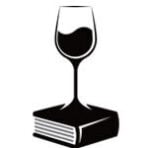Walla Walla Community College

Nestled in the heart of Washington wine country, Walla Walla Community College (WWCC) has earned a national reputation as one of the most practical and industry-connected wine programs in the United States. Established in 1967, the college launched its Institute for Enology & Viticulture in 2000, just as the Columbia Valley AVA was emerging as a major force in American wine. Since then, WWCC has become a key engine for the region’s viticultural workforce.
Curriculum and Format
WWCC offers Associate of Applied Science (A.A.S.) degrees in Enology and Viticulture, along with certificates in Enology, Viticulture, and Wine Marketing. These programs emphasize applied learning through a blend of classroom instruction, laboratory work, vineyard practicums, and winery production. All programs are in-person, centered on the school’s working vineyard and bonded teaching winery, College Cellars, which produces and sells over 1,000 cases annually across Washington State.
The associate degrees are typically completed in two years, while certificate pathways offer a shorter, more focused route for those seeking targeted training.
Admission Requirements
As a public community college, WWCC maintains open enrollment, requiring only a high school diploma or GED and basic placement in math and English. Applications are accepted year-round, with new students typically starting in the fall quarter.
Notable Faculty and Alumni
The faculty roster includes prominent wine educators like Tim Donahue, a former winemaker at Canoe Ridge, and Sabrina Lueck, an expert in sensory science. The college’s alumni network includes influential figures such as Tyler Tennyson, head winemaker at Dunham Cellars, along with numerous cellar masters, vineyard managers, and tasting room directors now working across the Walla Walla Valley.
Reputation and Outcomes
WWCC has been spotlighted in Wine Spectator and Wine Enthusiast as a model for wine education—frequently praised as “the hands-on winemaking school.” Its graduates enjoy high job placement rates in the Columbia Valley and beyond, especially in winemaking, vineyard operations, and sales roles.
Pros and Cons
Pros
✔ Highly practical, production-based curriculum
✔ Integrated teaching winery and vineyard
✔ Strong ties to leading Walla Walla AVA wineries
✔ Excellent mentorship and small class sizes
Cons
✘ No pathway to B.S. or M.S. degrees
✘ Emphasis is on applied skills, not academic research
Unique Features
A standout feature of the program is College Cellars, the college’s fully licensed, student-run commercial winery. Students participate in every step of the process—from planting and pruning to fermentation, blending, marketing, and sales. The wines frequently win awards and are available statewide.
Focus Areas
The program is centered on applied viticulture, enology, and wine business, with coursework covering soil science, dry-farming, site selection, and Columbia Valley varietals such as Syrah, Cabernet Sauvignon, and Merlot.
Student Body and Partnerships
WWCC enrolls approximately 80 active students per year, drawing from across the country. Students include both young adults and mid-career professionals looking to switch paths. Partnerships with regional powerhouses like Cayuse, L’Ecole No. 41, and Pepper Bridge help secure meaningful internships—and often employment—after graduation.
Accreditation
Walla Walla Community College is accredited by the Northwest Commission on Colleges and Universities (NWCCU) and maintains affiliations with VESTA (Viticulture and Enology Science and Technology Alliance) and the American Society for Enology and Viticulture (ASEV).
Conclusion
For those seeking an immersive, boots-in-the-vineyard education in one of America’s premier wine regions, WWCC offers a rare combination of academic access, hands-on experience, and direct industry pipelines. It may not offer a four-year degree, but it more than makes up for it in real-world results—and wines you can actually taste.
